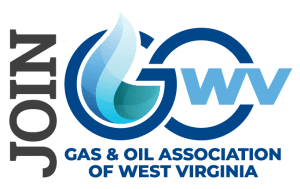By Doug Malcolm
Let’s be real about the oil and gas production tanks that are the subject of House Bill 2811. First, they are not “chemical storage tanks” as they have recently been described in an attempt to scare up opposition to the bill. The vast majority of these tanks contain produced brine (salt water). Some contain crude oil, and some contain a combination of the two. These are not hazardous substances and former WV DEP Secretary Randy Huffman stated on numerous occasions that these tanks pose “minimal to nil risk to public water supplies.” Any attempt to paint them as chemical storage tanks is misleading at best.
Second, the tanks that are the subject of HB 2811 are located in remote areas, miles from public water intakes. Generally speaking, these tanks are 12 to 25 miles away from the intakes. Often, they have been targeted for enhanced regulation only because they are within 500 feet of an ephemeral stream, or one that only flows during major storm events. In a number of cases, the water in these tanks would actually have to flow uphill in order to reach the nearest stream. It’s been a long time since I studied physics, but I sure don’t remember that exception to Newton’s Law of Gravity.
Third, these tanks are small. HB 2811 exempts those tanks smaller than 210 barrels. That’s 8,820 gallons. The majority of the registered oil and gas tanks are 50-100 barrels (2100 to 4200 gallons). Most of these tanks are 5’ to 10’ tall and about 8’ in diameter. To try to compare one of them to the humongous chemical tanks, with a total capacity of 4 million gallons that comprised the Freedom Industries facility in Charleston, is disingenuous and fear-mongering at its worst.
Fourth, although these tanks would be exempt from the recent Above Ground Storage Tank Act if HB 2811 passes, they are in no way exempt from regulation. Currently, oil and gas production tanks are subject to intense scrutiny and regulation under the existing oil and gas laws (35 CSR 1). Among other things, this includes inspections, secondary containment, and fitness for service and has proven effective for decades. In addition, they are subject to Tier II regulation by the West Virginia Division of Homeland Security, and Federal Clean Water Act enforcement under the EPA’s Spill Prevention, Control, and Countermeasure (SPCC) regulations. Also, depending on the specific situation, they may fall under the purview of Storm Water Protection Plans and other State regulations. The effectiveness of all this Federal and State oversight is proven out in the long history of environmentally safe operations in our industry. I am not aware of ANY public water intake that has ever been affected by a spill from an oil and gas production tank
Fifth, enforcement of the current AST Act is a confusing mess. Inspectors from at least 3 different State agencies are tripping over themselves, issuing conflicting orders, on our well locations. Personnel from the AST office, Division of Water and Waste Management, and the Office of Environmental Remediation are all claiming jurisdiction. But wait. Who’s missing from all this? That’s right, the Office of Oil & Gas! The OOG inspectors, the people with the most history, knowledge, and expertise in the industry have been shuffled aside and have been left completely out of the AST Act process. This is beyond ridiculous! Enforcement of oil and gas regulations, including tanks, should be handled by the people who understand them the best–the DEP’s Office of Oil and Gas
I run a small, conventional oil & gas company in southern West Virginia. We have seven employees and some of them have been with us for over 30 years. I’m proud of that. They enjoy good wages, paid vacations, health care, and retirement plans. I’m proud of that. Several have children that are first-generation college attendees and graduates and have remained here in West Virginia. I’m very proud of that. I’ve worked in the oil and gas business in West Virginia for over 30 years and, in all that time, I’ve never seen a law or regulation that has had such a devastating effect on one sector of our industry. The AST Act has proved to be crippling to the smaller, conventional producers. At a time of historically low commodity prices, the addition of costly, duplicative, one-size-fits-all regulation is literally putting oil and gas producers out of business. It’s as simple as that. The oil and gas industry is one of the few bright spots on West Virginia’s economic horizon. We cannot allow misguided regulation to kill this opportunity. Please pass HB 2811.
— Doug Malcolm is Vice President of D. C. Malcolm, Inc., an oil and gas production company based in Charleston, WV. He is also the Chairman of the Environmental and Safety Committee of the Independent Oil Gas Association of West Virginia.

